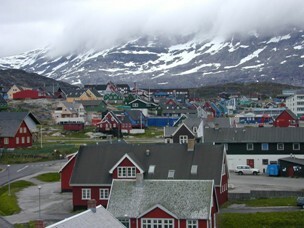Insufficient education, unemployment, violence and crime, lack of housing, poor health, lack of sanitation are some of the social problems in Brazil.
education
Low investment in education results in a shortage of schools, crowded classrooms and a lack of material in educational institutions. As a result, student education is often lacking or achievement is low.
As the school is not prepared to serve students, some are not followed up with adequate attention. There are also still a high number of children who need to help their families by working, and for this reason, they start school late or drop out.
Without education, they will get low-skilled jobs, perpetuating the cycle of poverty.
Unemployment
Studies indicate that low education and low professional qualification are the biggest obstacles to occupying vacancies in the labor market.
For young people, especially in high school, this issue is a cause for concern. According to the IBGE, in 2020, 27.1% of young people between 18 and 24 years old are unemployed.
Violence and Crime
One of the causes of criminality is the poor distribution of income and difficulty in accessing school. Without having equal opportunities for schooling, transport and health, many young people find themselves co-opted into the criminal world.
According to the 2019 UN report, 1% of the population in Brazil concentrates 28.3% of the country's total income. Therefore, we find people who earn very high salaries and others who earn very little.
The solution would be to promote the social inclusion of young people from the periphery through formal education and the improvement of urban facilities in marginalized sectors.
Home
According to data from IPEA (2009), there is a serious housing deficit of 7.9 million homes in Brazil and there are still homes without sewage, drinking water and electricity.
There are families that live in houses with a number of inhabitants much greater than the number of rooms. One of the consequences is the lack of privacy and the propensity for the emergence of diseases.
Health
The Unified Health System (SUS), created in 1988, aims to serve the entire population free of charge.
Unfortunately, this is not always possible, and many hospitals are overcrowded, without adequate equipment and without enough professionals to attend to them. To get an idea, the Brazilian Society of Pediatrics (SBP) recommends 4 beds for every thousand live births. However, in the Brazilian public system, this number is 1.5 beds.
In addition, not all Brazilian cities have hospitals, which further aggravates this situation.
Sanitation
The lack of basic sanitation is a reality in many homes in Brazil.
According to data carried out by the National Basic Sanitation Survey and the Sanitation Supplement of the Survey of Basic Municipal Information, in 2017, about 39.7% of Brazilian municipalities did not have sewage service Restroom.
Without proper collection of dirty water and the guarantee of receiving clean piped water, diseases proliferate.
In this case, regional disparities are evident. While in the Southeast region, 91% of homes are connected to the sewer system, in the North region, only 7.1% of homes have this service.
Causes of Brazil's social problems
In addition to income concentration, we can cite other causes of social problems in Brazil:
- Lack of family planning: Many families do not have access to contraceptive methods and end up having more children than they could support.
- Lack of commitment on the part of government officials: certain political leaders do not make an effort to resolve social problems in their region, which makes their eradication difficult.
- Corruption: the diversion of funds destined for hospitals and schools, as well as the increase in the cost of infrastructure works, harms the needy population.
Likewise, we find that the northern and northeastern regions are more affected by illiteracy and poor health.
Solutions to Brazil's Social Problems
The fact that social problems are interconnected makes their resolution more complex.
An example: the low level of education results in unemployment or underemployment, which reflects on the individual's quality of life.
Only good planning with the objective of attacking the causes of these problems would make room for a progressive solution.
We have more texts for you:
- poverty in Brazil
- Violence in Brazil
- The biggest examples of social inequality in Brazil
- education in Brazil
Bibliographic references
Senna, Jhonatan - The incidence of social vulnerability on the practice of infractions in the Brazilian Northeast. Published on jus.com.br. 03/2019. Consulted on 01.07.2021.
"Talent shortage affects job vacancies in Brazil". Published in G1 on 09.29.2019. Consulted 01.06.2021.
"Four out of ten municipalities have no sewage service in the country." Brazil Agency. Published on 22.07.2020. Consulted on 01.07.2021.



